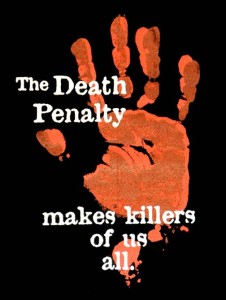Express News Service
Coimbatore
While the efficacy of capital punishment in deterring crimes is a much debated topic, the actual number of people sent to the gallows in India itself has still not been established.
Citing numbers from the 35th Report of the National Law Commission, the Death Penalty Research Project, National Law University, Delhi, states that a total of 1,410 people were executed between 1953 and 1963, which roughly translates to more than 130 people killed each year between the period.
Meanwhile, Tamil Nadu has refused to disclose details of executions for the study. According to the report, the ADGP Prisons, said that he would only disclose details after an inquiry was conducted on the university.
In “Lethal Lottery: The Death Penalty in India,” a study on Supreme Court Judgments in Death Penalty Cases in India, conducted jointly by the People’s Union for Civil Liberties and Amnesty International, the study states that the National Crime Records Bureau only lists 25 executions in the period between 1995 and 2004. The NCRB has also stated that there were no records available with the bureau prior to 1995.
The report estimates that the actual number of executions could be “large and may run to several thousands.”
It also states that while it was reported that Dhananjoy Chatterjee was executed in 2004, after a period of seven years, the name of the prisoner executed in 1997 is not available or has not been disclosed by the government.
While the Law Commission has recommended that the death penalty be applicable only for terror-related cases, activists point to the case detailed in the study of Kashmiri separatist, Mohammed Maqbool Butt, who was tried under the Enemy Agents Ordinance, 1943, and executed in 1984. Due to the invocation of the act, there was no scope for appeal, and researchers were unable to find records of his case for study.
Even the fate of Bachan Singh, whose case was cited earlier and has become a case-study on the application of the death penalty, is unclear, as there are no records of his execution. It still remains a mystery as to whether Singh was executed, remains in prison, or has been freed.
However, according to the list of executions from the National Law University in Delhi, one Bhajan Singh, was executed in Punjab on June 14, 1988. It is unclear whether the executed Bhajan Singh is the same Bachan Singh as the one whose conviction was upheld in 1981.
Activists point out that with such flimsy data and records to rely on, there can be no informed debate on the efficacy of the death penalty, and as a consequence, capital punishment must be abolished or at the very least, be temporarily abrogated.

Leave a Reply